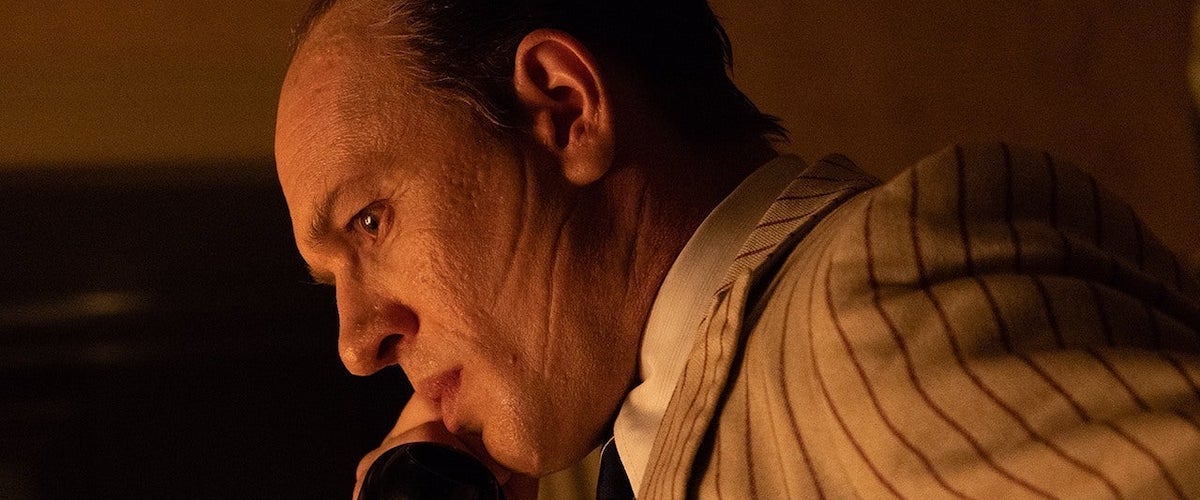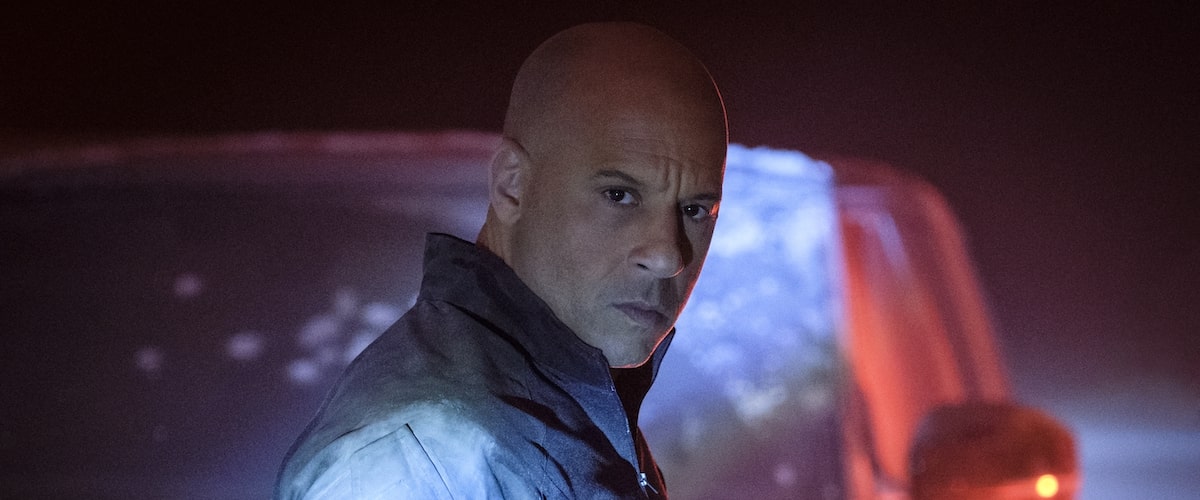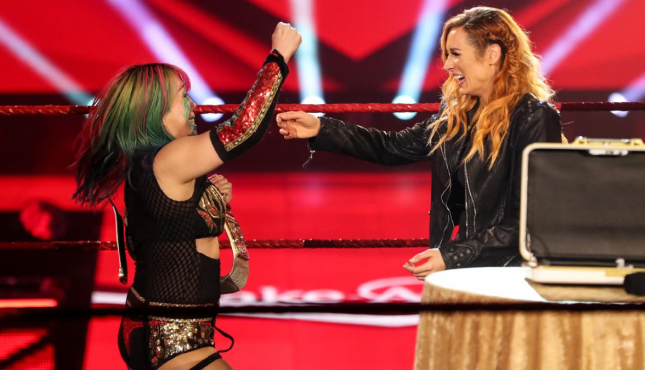I've been watching WWE wrestling more lately, and for those who don't know, the television programming and pay-per-view events have been taking place at the WWE Performance Center in Orlando, Florida. The center is where up-and-coming Superstars train to become pro wrestlers.
Recently, Florida Governor Ron DeSantis deemed WWE as an essential business and allowed the company to continue holding events there, sans fans in the stands. I've grown accustomed to watching these contests without a live audience, so this review will measure the merits of the plots and the action itself. I will use wrestling lingo here, so hopefully you will know what I'm talking about.
Opening segment: The Dirt Sheet (with hosts The Miz and John Morrison) and guest Otis.
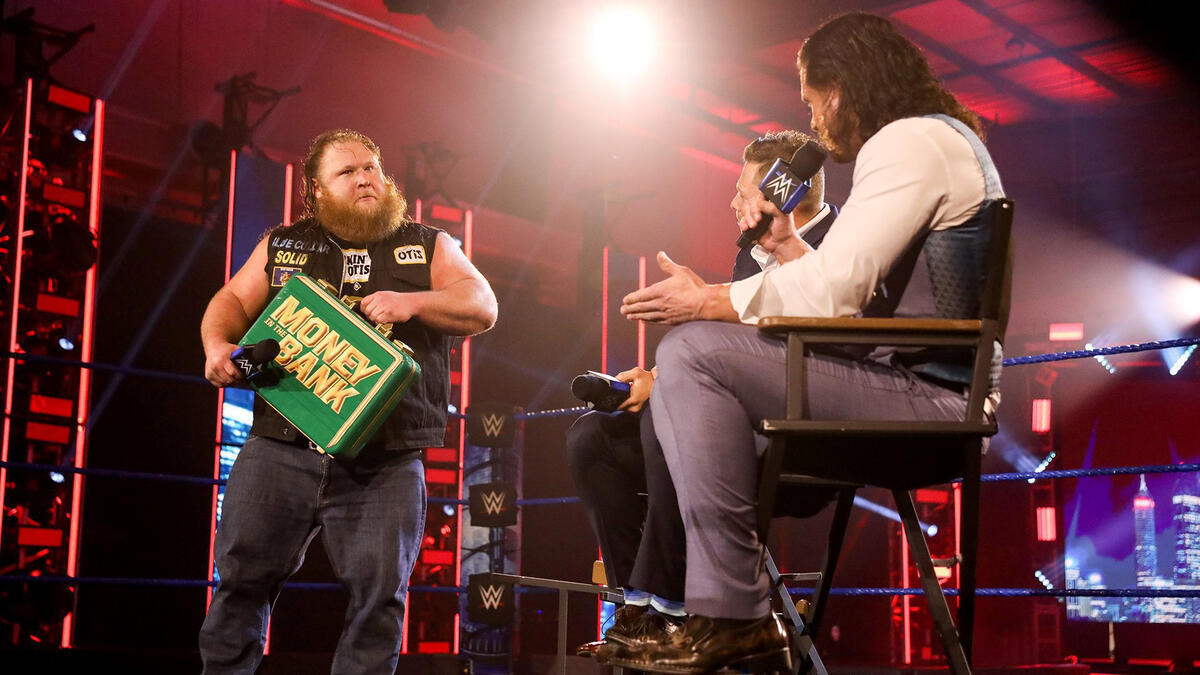
Otis won last weekend's Money in the Bank pay-per-view by having the metal briefcase symbolizing a future title shot at any time or place of the briefcase holder's choosing. On most occasions, the briefcase holder will wait until the champion he wants to face will be at his/her most vulnerable (after a beatdown or a grueling match) and then "cash in" the briefcase for an impromptu championship match. In nearly every instance, a championship changes hands when this happens. Only four times has the Money in the Bank briefcase holder failed to win the championship after cashing in.
Otis (who before recently was primarily a tag team wrestler with partner Tucker as Heavy Machinery) is the unlikely holder of the briefcase, as well as the onscreen boyfriend of smoking hot blonde wrestler Mandy Rose. Their relationship is not particularly convincing since the limits of their affection for each other result in Mandy pecking Otis on the cheek. Otis is a big lug with speech issues whom Miz and Morrison make fun of by flashing childhood pictures of him. Otis confesses to having learning disabilities, but was still able to make something of himself through sports. Miz and Morrison wonder aloud when Otis will be expecting (a shot at his giant belly).
The Miz (Mike Mizanin) is a reality television star turned pro wrestler who has had a long, distinguished career in WWE. He has held numerous titles, including a recent Smackdown Tag Team Championship run with Morrison, which ended shortly after Wrestlemania in April. He's a solid in-ring performer and a solid mic worker, but I get the feeling The Miz is an actor playing a heel wrestler whenever I watch him. He can play the notes, but doesn't necessarily know the music.
Morrison is a terrific in-ring performer who has never failed to inspire a meh feeling in me. So you have two okay heels picking on the swell babyface Otis and when Otis can stands no more, The Miz and Morrison challenge the big guy to a tag team match later on. Otis will have to find a partner since Tucker is conveniently unavailable. Otis will eventually talk Universal Champion Braun Strowman to be his partner, with Strowman understanding that Otis may indeed decide to cash in on him.
First match: Intercontinental Championship Tournament, First Round Matchup
Elias vs. King Corbin
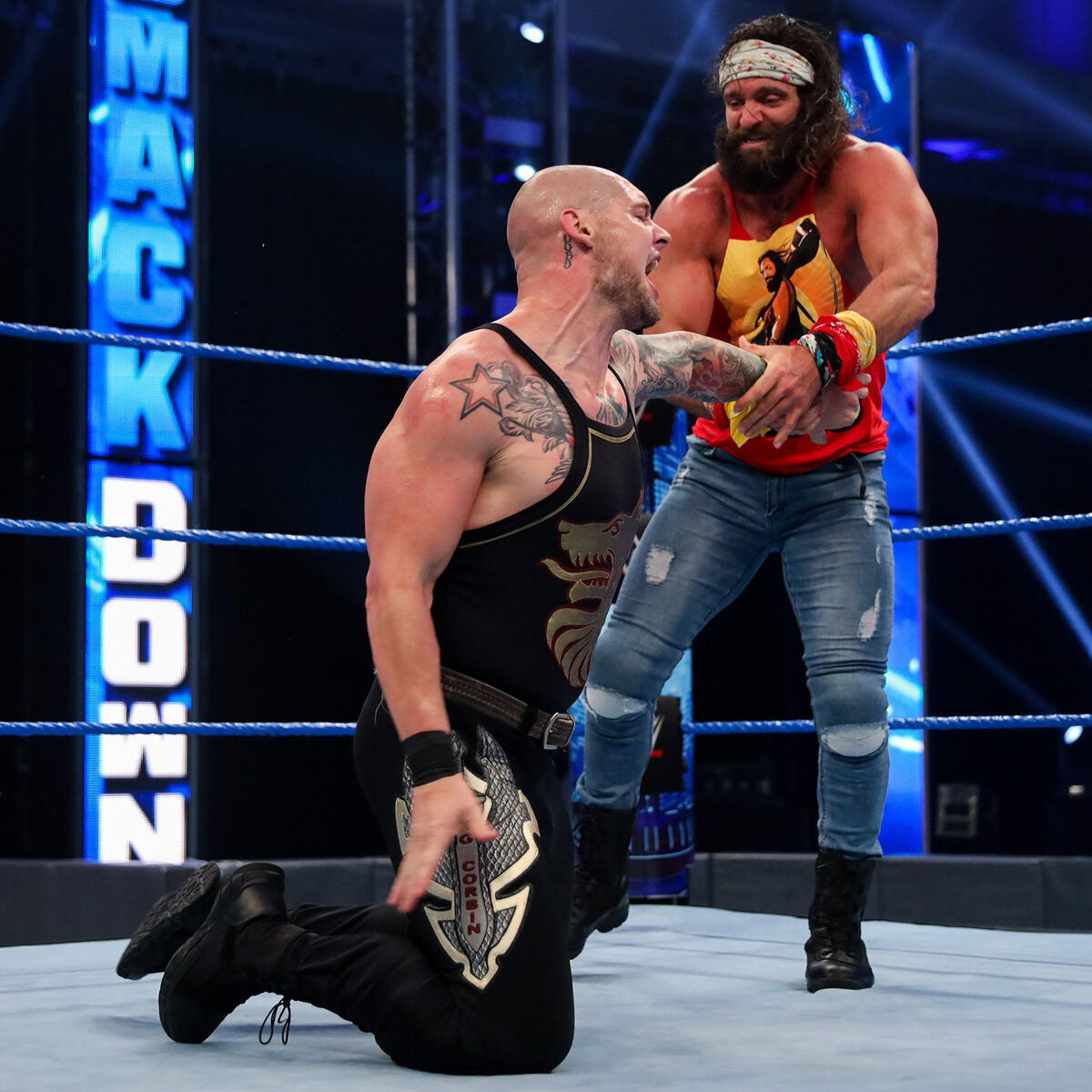
The most recent Intercontinental Champion, Sami Zayn, was recently stripped of the championship for failure to defend, although Brock Lesnar can go months and months without even showing up on television, let alone defend any title he holds at that moment. Nonetheless, an eight man tournament is being held to determine a new champion and the first match is between bitter enemies Elias (who brings a guitar to the ring and sings disparaging songs about his opponents) and King Corbin (a heel/personality vacuum). Before Wrestlemania, Corbin threw Elias off of a raised platform, which would normally result in the death or paralysis of Elias, but Elias returned for Wrestlemania without missing a beat and defeated Corbin. The uninteresting feud did not end there, and Corbin later smashed a guitar over Elias' head and stepped on his fingers. Elias would respond by interfering in the Money in the Bank ladder match and costing Corbin the match. This is after Corbin chucked not one, but two other wrestlers off the roof of Titan Tower. Luckily, the two wrestlers landed on a scaffolding or something six feet below the roof. Whew.
Back in the day, heel wrestlers would cheat throughout a match with an evenly matched babyface in order to gain an advantage. Feet on the ropes, choking an opponent, low blows, you name it. Elias and Corbin match each other move for move, but other than occasional trash talk and Corbin smashing Elias' guitar to pieces, you wouldn't know for sure that Corbin was the heel. After the smashing, a pissed off Elias springs to life and defeats Corbin with a small package. The lesser of the two personality vacuums wins, and my guess is Corbin will find a way to cost Elias the title and continue to force upon us this miserable feud.
Next segment: Charlotte Flair (NXT Women's Champion and daughter of Ric Flair) makes an appearance

Charlotte Flair won the NXT Women's title at Wrestlemania, and has appeared as often on Raw and Smackdown as she has on NXT. She has defended the title only once and shows up on Smackdown to espouse her greatness in her usual monotone promo style. Charlotte looks great and is a stellar worker, but she just doesn't have much charisma. Enter Smackdown Women's Champion Bayley, who defeated Flair last year for the title after cashing in a Money in the Bank briefcase. Bayley is accompanied by her best friend Sasha Banks, and the WWE has been teasing a feud between Bayley and Banks for what seems like eons. Bayley has turned heel since the last time she faced Flair in the ring, which was shortly after Banks turned heel and had her push stalled with a defeat at the hands of then-Raw Women's Champion Becky Lynch. Bayley taunts Flair about beating her last year, and Bayley is sufficiently annoying as a trash-talking baddie, but Flair instead confronts Sasha and asking why she chooses to be Bayley's flunky instead of a champion in her own right. Fair enough question, especially since Sasha is spending the bulk of the segment staring at the ground. Bayley and Flair will battle next week, and the Banks and Bayley breakup will continue to move at a glacial pace. This is a blowup that should have come by Wrestlemania...in 2018.
Next: Naomi vs. Dana Brooke
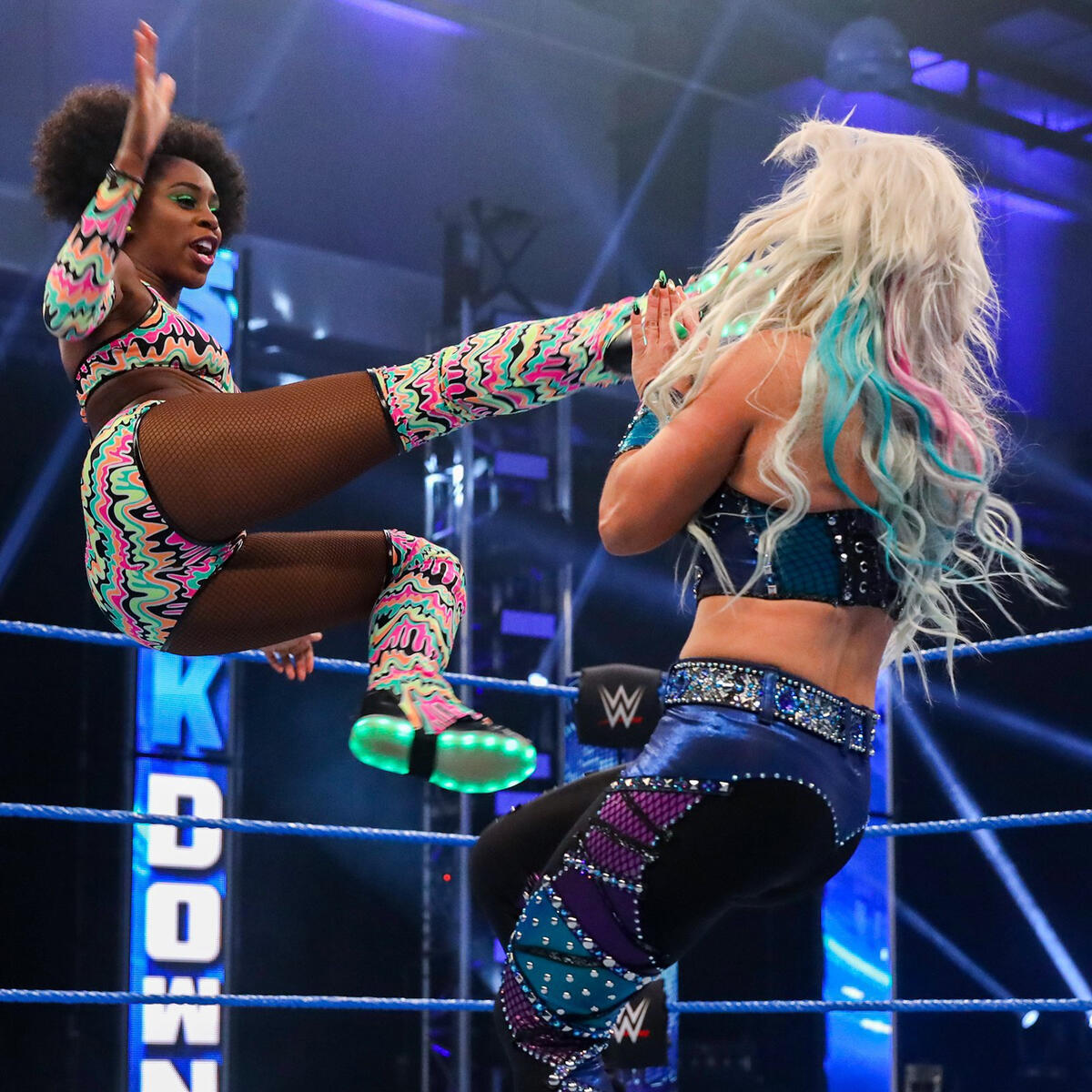
A couple of weeks back, underneath wrestler Dana Brooke upset former Smackdown Women's Champion Naomi to earn a spot in the Money in the Bank Women's ladder match. Brooke not only did not win the briefcase, but she was placed in a spot in which she looked like a complete fool.
Here is the rematch, and Brooke wins again after a few minutes of wrestling. Naomi is pissed and will likely turn heel soon. Eh, who cares? Both are now in mid-card purgatory and I strongly doubt either woman will receive a main event push now. Brooke has the look, but she has been a jobber to the stars for so long a push would be impossible to pull off.
Next: First Round Intercontinental Championship Tournament Match: Daniel Bryan vs. Drew Gulak

Bryan and Gulak were enemies who battled at Elimination Chamber, the pay-per-view before Wrestlemania, and then became friends out of mutual respect. They battled common enemies and are now matched up in the first round of the Intercontinental Championship Tournament. After a drawn-out face vs. face scientific battle, Bryan wins via submission and advances. Bryan explains how he wants to win back the title he held when he was forced to retire in 2015 due to medical complications from years of wrestling. There will be no rematch, since Gulak's contract was not renewed and his release from the company was made official the following day.
Finally: Otis/Braun Strowman vs. The Miz and John Morrison
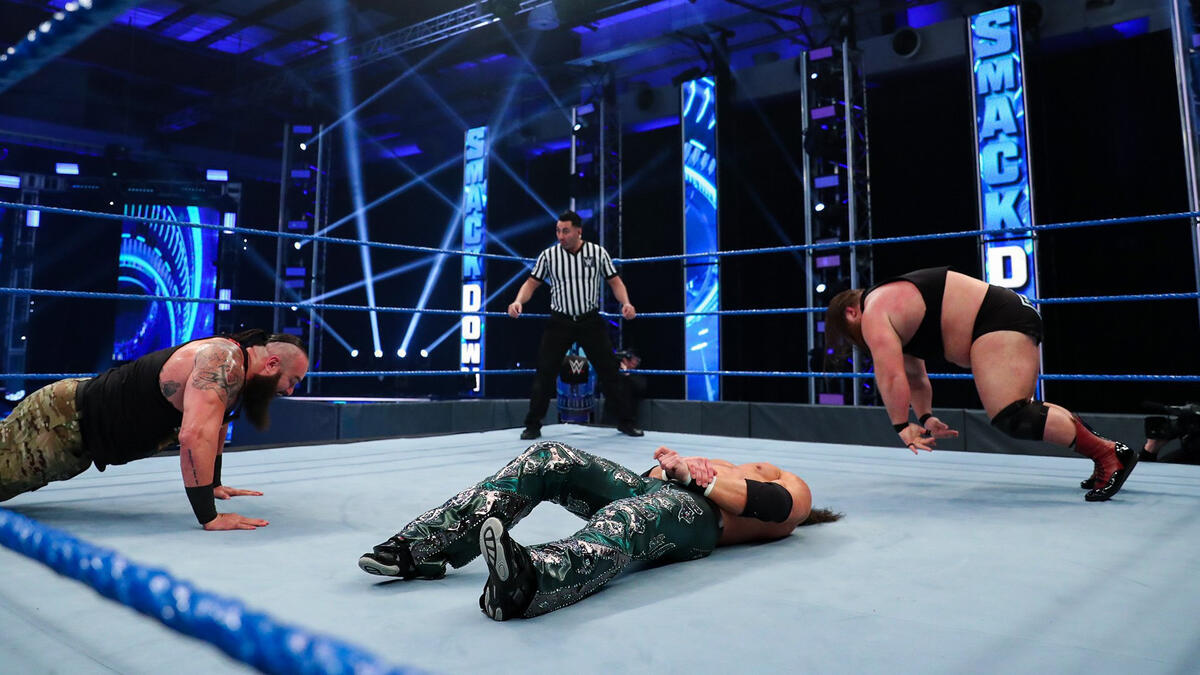
Otis arrives to the ring alone, but Strowman soon appears and we now have a tag team match with no heat or history between the teams. Strowman and Otis beat up Miz and Morrison for the bulk of the match and then Strowman wins after a powerslam to Morrison, who is forced to eat another pin. The Miz and Morrison call themselves the tag team of the century, or something like that, but this run has them losing matches as often as Lucha House Party. Lucha House Party even upset them a few weeks back. Miz and Morrison managed to secure a championship reign in between the losses, which was mercifully brought to an end by The New Day. Otis' signature move is The Caterpillar, which both he and Strowman perform on a prone Morrison. Following the near squash match, Mandy Rose struts her way to ringside and distracts Strowman long enough for Otis to tease a cash-in, but Strowman catches on and Otis pretends he was only kidding about a cash-in. Strowman, Mandy, and Otis celebrate in the ring by holding up their respective trophies at the camera as Smackdown goes off the air. What was to prevent Otis from bashing Strowman in the back of the head with the metal briefcase a few times before cashing in? Nothing, since dopey Strowman stayed in the ring to celebrate even after Otis teased a betrayal.

